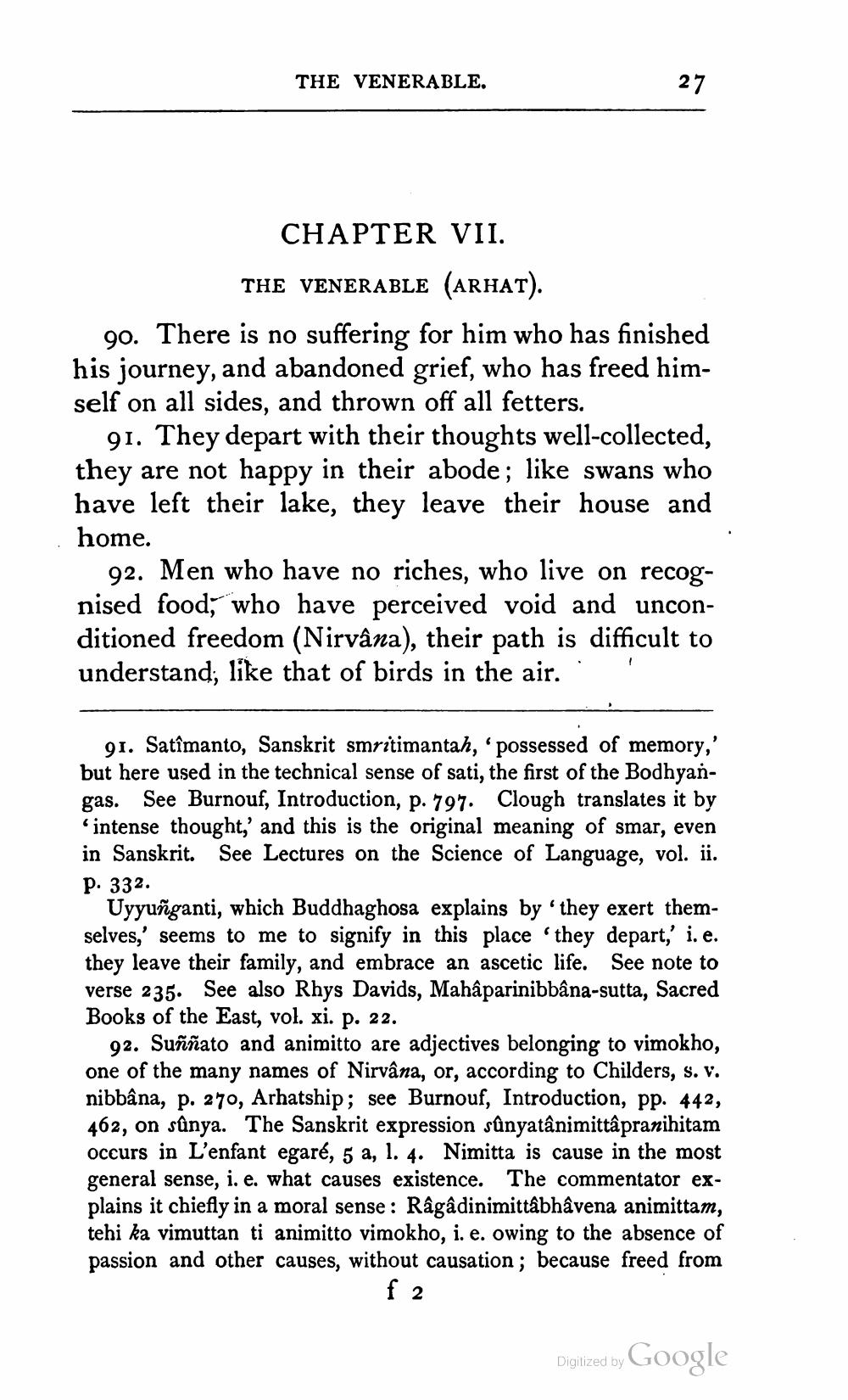________________
THE VENERABLE,
27
CHAPTER VII.
THE VENERABLE (ARHAt). 90. There is no suffering for him who has finished his journey, and abandoned grief, who has freed himself on all sides, and thrown off all fetters.
91. They depart with their thoughts well-collected, they are not happy in their abode; like swans who have left their lake, they leave their house and home.
92. Men who have no riches, who live on recognised food, who have perceived void and unconditioned freedom (Nirvâna), their path is difficult to understand, like that of birds in the air.'
91. Satîmanto, Sanskrit smritimantah, “possessed of memory,' but here used in the technical sense of sati, the first of the Bodhyangas. See Burnouf, Introduction, p. 797. Clough translates it by 'intense thought, and this is the original meaning of smar, even in Sanskrit. See Lectures on the Science of Language, vol. ii. P. 332.
Uyyuñganti, which Buddhaghosa explains by 'they exert themselves,' seems to me to signify in this place they depart,' i. e. they leave their family, and embrace an ascetic life. See note to verse 235. See also Rhys Davids, Mahậparinibbâna-sutta, Sacred Books of the East, vol. xi. p. 22.
92. Suññato and animitto are adjectives belonging to vimokho, one of the many names of Nirvana, or, according to Childers, s. v. nibbâna, p. 270, Arhatship; see Burnouf, Introduction, pp. 442, 462, on sûnya. The Sanskrit expression sûnyatânimittâpranihitam occurs in L'enfant egaré, 5 a, l. 4. Nimitta is cause in the most general sense, i. e. what causes existence. The commentator explains it chiefly in a moral sense: Râgâdinimittâbhâvena animittam, tehi ka vimuttan ti animitto vimokho, i. e. owing to the absence of passion and other causes, without causation; because freed from
f 2
Digitized by Google




